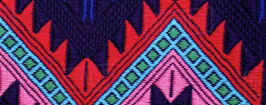



Hope Chigudu said:
NGO-isation?
I am not sure that I know what this term means but what I know is that there is a way in which we do things as NGOs that makes some of the people we work with believe that is the only way things are done and should be done. Here is an example. We asked the women to work in groups of three to identify a campaign issue (compelling, and close to their hearts) to focus on during the next few months. Many came up with topics such as (a) Women in decision making, b) Girl child network, c) violence against women etc. These are common and broad topics for NGOs but are they the ones that keep the women awake at night? Are these the topics they are worried and passionate about everyday, the ones that follow them like a shadow?
During the hilarious night session, the conversation led to ARVS and how the ones they are using in Malawi distort their bodies by destroying their shapes; some grow humps at the back, horns in the vagina, they become hairy, legs get thinner and the breasts and stomach bigger. The conversation was tough, sad and passionate; ideas, perceptions, feelings, experiences and fears were shared. The images they used to describe how their bodies respond to ARVs were rich and diverse, the metaphors run the full range from precise and illuminating to obscure and confusing. This was true conversation; enlivening and enlightening and it shaped what women are really passionate about, what keeps them awake at night, what they fight and what makes them lose their dignity. They all wished there were better ARVs. At the end of the conversations we were horrified at what ARVs are doing to women’s bodies. The question we were left with as we retired was – this was a remarkable day, there were some remarkable discussions, but why did not the women talk as passionately about ARVs during the groups discussions as they did in the informal meeting in the evening? Why were they trying hard to identify topics that were not closely related to their bodies? What does this mean for our work?
So actually the evening conversation provided a much more reflective space and shared meaning, and we were able to see into the real situation. After listening to the stories regarding the ugly side of ARVs, the conversation continued and we shared crazy mad and interesting stories about sex and sexuality…
Lisa VeneKlasen said:
This is so interesting. Yes, NGO-isation can be pretty confusing because NGOs – as one professionalized form of civil society organizing – aren’t inherently bad. It’s the one-size-fits-all, technical and institutionalized approach to social justice that’s the killer. Having ONLY ONE Linear APPROACH just kills the creative energy that drives human uprising against injustice and sustains mobilization. And in Southern Africa especially because of the extraordinary power of donors and the aid industry relative to other regions, it’s become an ideology that has co-opted language (we can’t use the word empowerment without explaining that we mean something different than what the World Bank means) and mindsets to fit the donor box. That’s why we can’t use words like “issue” or “campaign” until they’re already organized and running.
Maybe the question is: in your life, what problem do you share that, if solved, would make things better? The answer to that is usually poverty but you can slice it down. I suspect that once we move into the strategy on ARV treatment – which is what they want – so many other injustices will emerge and the agenda will grow. It’s like my first organizing experience where a very poor, Latino community wanted a STOP SIGN as their big issue. As a young Marxist revolutionary, I was crushed at how mundane and irrelevant this was. But once we started it got so big they ended up mobilizing to change the city charter.
The story about distorted bodies is surreal as much as tragic. I’m sure you girls picked up a lot of new sex techniques to boot…
Hope Chigudu said:
Thanks, I agree originality and self determination are gone, although I don’t see much different between Africa and my ‘clients’ in Asia.
Carmen Sahonero said:
Yes, I agree with that. I think as a professional form of civil society organizing, NGOs play a critical role in fighting for social justice. I would say that provides to the movements more credibility and sustainability.
About the ARVs side effects in the body shape, it is just frustrating. Lipodystrophy or fat redistribution in the body (I just learned that term today), it takes time to come, but it comes and could be one of the most powerful causes of depression.
Maggie Mapondera said:
This is really powerful.
I think there’s this problem around the world for women everywhere, but maybe particularly in post-colonial (or situations of political oppression that you find in certain countries) contexts where people, and especially women have not always had the opportunity to view themselves as subjects. Their bodies are objects; their experiences are not “worth” much, their lives even. And this mentality seems to bleed into the way that NGO programs are built with all the one-size-fits-all, technical approaches that don’t always allow women and people to be subjects and to have authorship and ownership over the solutions to the very real problems they are facing. It’s striking to see how women’s narratives, the narratives they build of themselves can be so defined (and in some ways confined) by what’s coming from the outside. So their experience of their realities, of sexuality, of their bodies at a biological and physical level isn’t considered “important” or even worth addressing. Because it’s not NGO-“sexy” or whatever. I am so glad that the evening conversation was able to tease some of those truths out, that passion, and that actual lived experience.